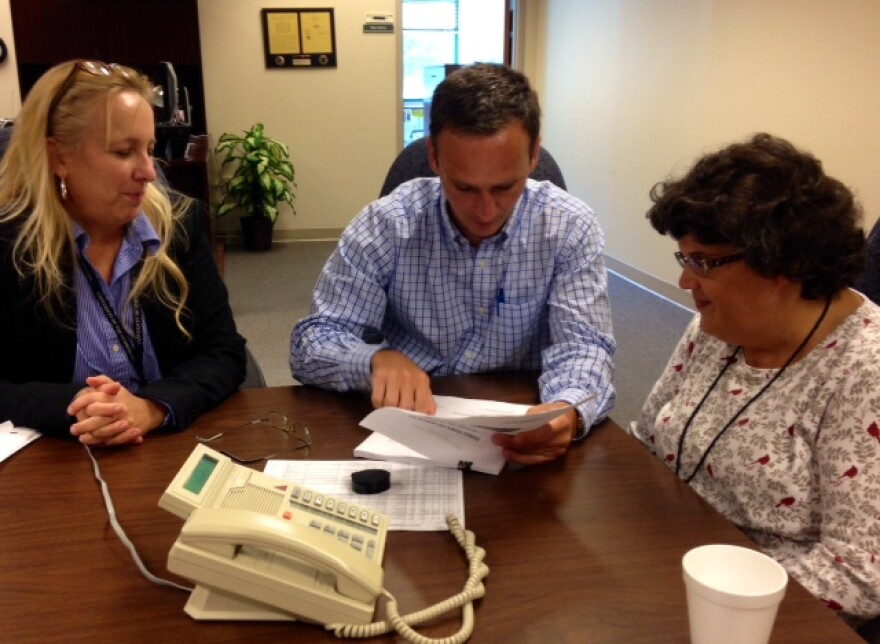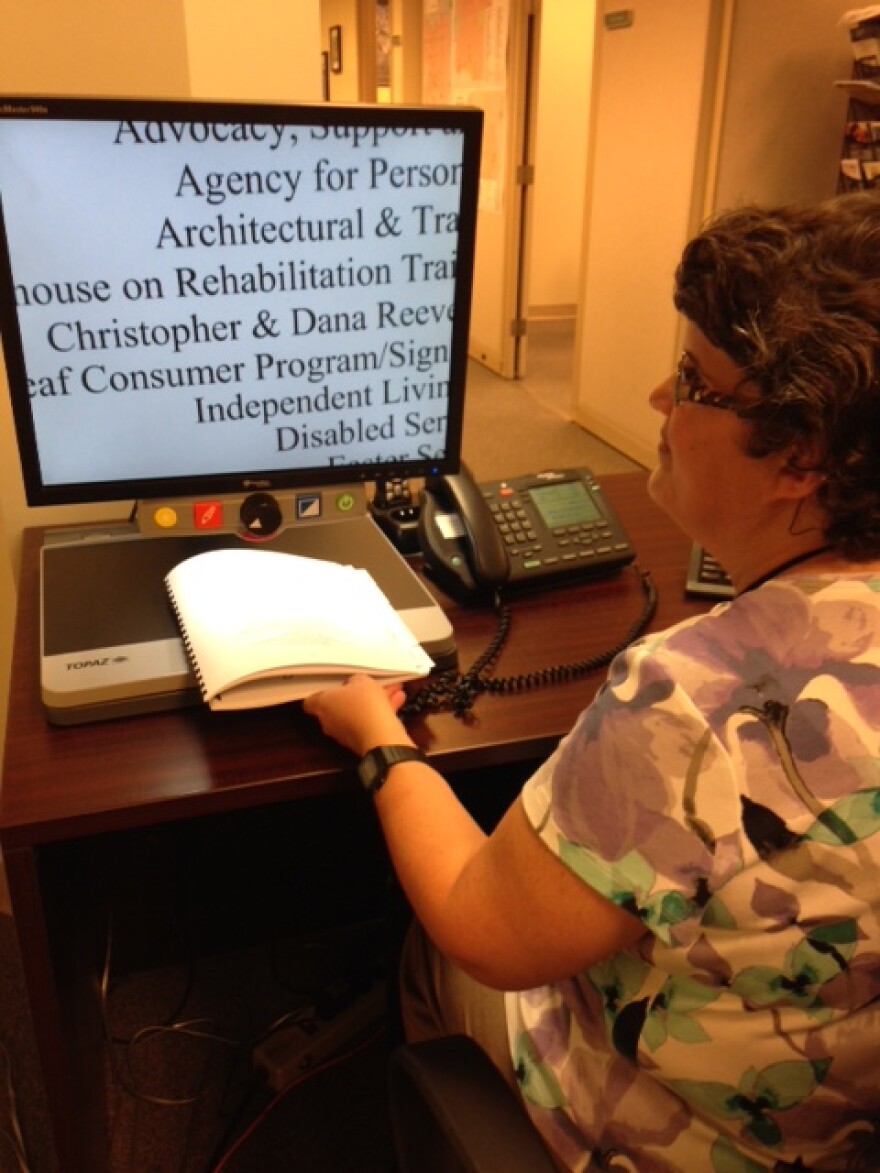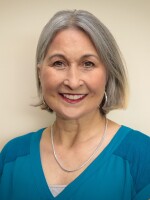It has been difficult for many people to find work in recent years, but it's even more of a challenge for those who are blind or have trouble seeing.
Florida’s Division of Blind Services report that more than 5,000 people in their vocational or transitional programs are in need of a job. That number went down by one recently, when Elizabeth Fraser of Jacksonville found a part-time position.
Fraser considers herself one of the lucky ones. She endured a long stretch of unemployment after being downsized. She knocked on doors looking for another job, and with limited sight she had the extra obstacle of convincing employers that she would be able to do the work.
Today, she's employed with the Jacksonville’s Office of Disabled Services, and feels truly happy.
“I’m mean, really, I’ve been unemployed for so long, that I’m just thrilled that someone took me in and gave me a work opportunity," she said.
Frazer, who goes by “Liz,” is considered legally blind. She gets around without a white cane and navigates through blurry shapes. Being a very independent person, she didn't want to impose on her family or friends to help her with her job hunt. Instead, she used public transportation, which meant she could only apply for jobs close to a JTA bus line.
At her new job in downtown Jacksonville, she uses a magnifier to help her see names she’s calling on a phone list. Any special equipment - like readers or magnifiers needed on the job for persons with visual impairments - is provided (and paid for) by the Americans with Disabilities Act and the Job Accommodation Network.
Still, some employers are wary. They may wonder how they would have to accommodate a blind person or if that employee would be able to keep up with the job. It was the Division of Blind Services' vocational program that taught Fraser to be persistent with skeptical employers.
Fraser can detect shapes well enough to read negative body language. If she told an interviewer about her sight limitations, she’d sense their uncertainty. Many times, they told her she was overqualified and she wouldn’t get the job.
“As far as my disability, they were unsure, if they were to hire me, would it be a hindrance," Fraser said. "And I’d reassure them that I have a service that provides accommodations for the workplace; like magnifiers, closed circuit TV's or visual text. I would inform them right away, that it wouldn’t be something out of their pocket."
Dan O’Connor, a rehabilitation specialist with DBS who helped Fraser with training to re-enter the workforce, said there are a lot of out-of-work blind people who are motivated and very dependable.
"I would say [employers should] sometimes not be so quick to screen people out maybe that might have gaps in employment; to try to have an avenue of an interview and see what they have to offer. Maybe have more in the way of internships or apprenticeships where people could gain the experience," he said.
It was O’Connor who contacted the Disabled Services Office about volunteer options there. Fraser became a volunteer, and soon she was hired part-time because her manager, Beth Meyer, took a liking to her right away.

“We loved Liz like almost immediately, she was a perfect fit," she said.
Myer said Liz will be trained to help others with disabilities looking for work and who could also perhaps start as volunteers. Yet, just as she’s settling in, there’s talk of budget cuts for the city, and that has Fraser worried about having to do a job search all over again.
“The thought has crossed my mind, yes," Fraser said. "But all we can do is hope for the best. And yes, I am prepared, I feel that what doesn’t hurt us makes us stronger.”
You can follow Michelle Corum on Twitter @MCorumonME.




